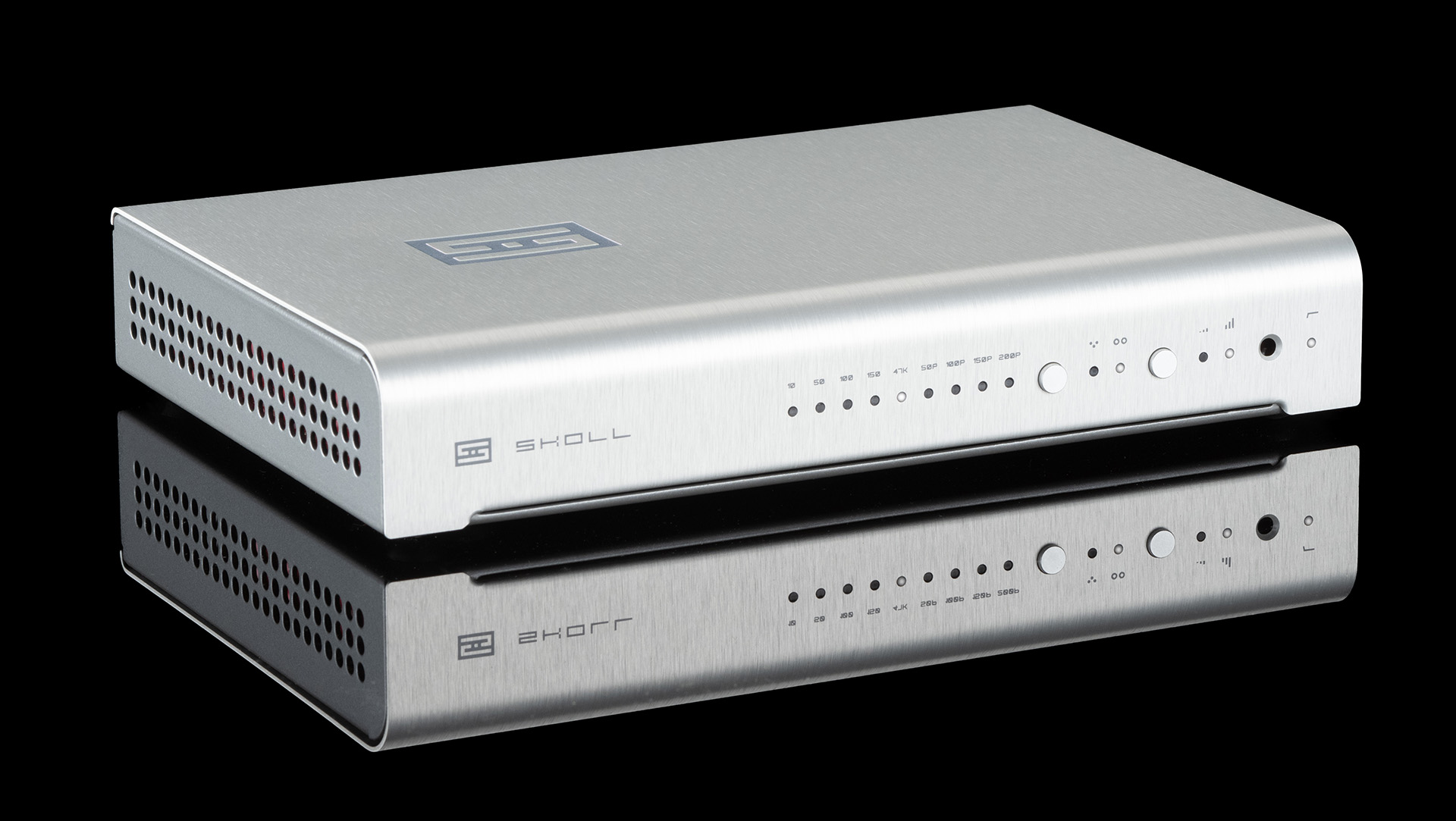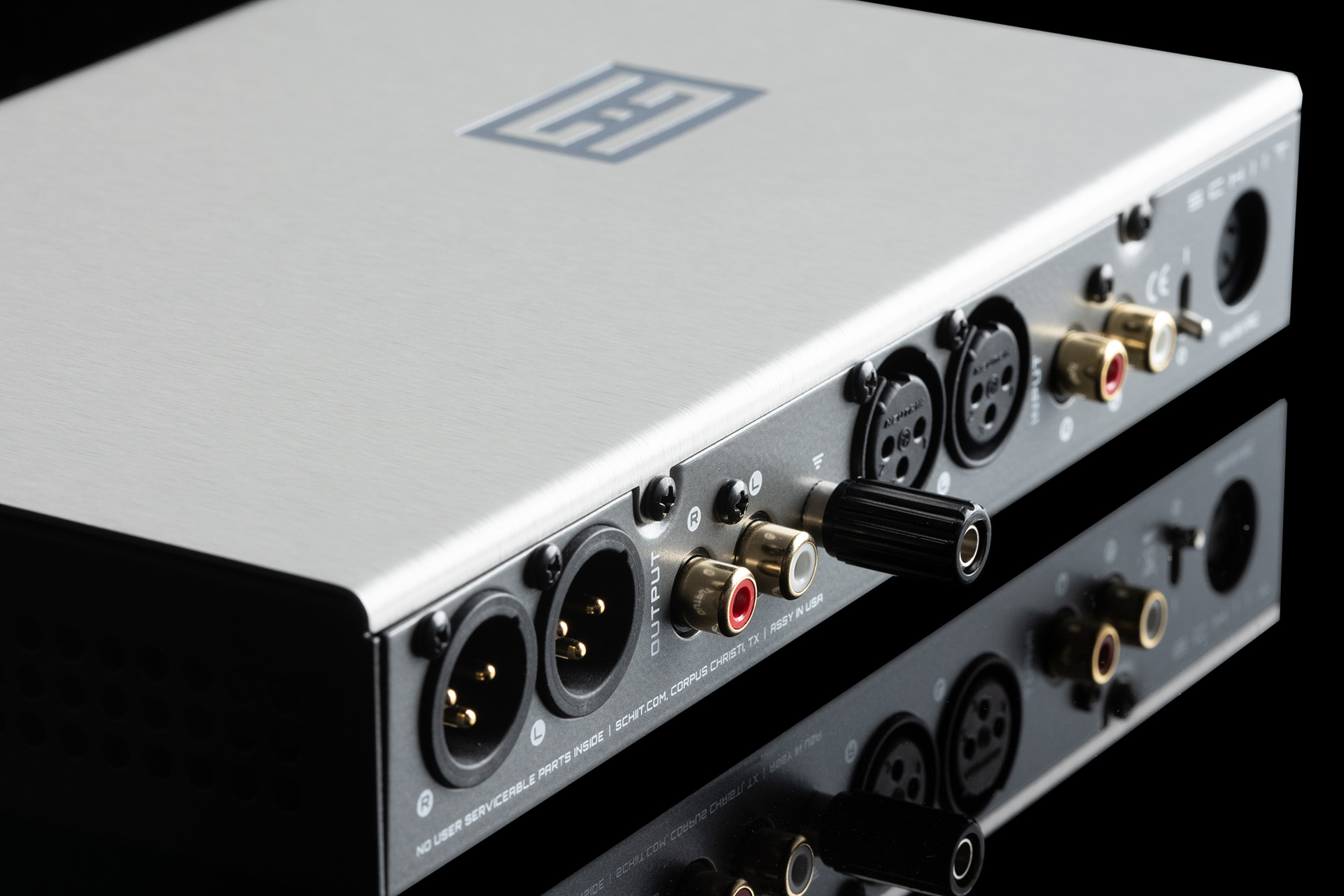SPECS THAT MATTER
Gain: enough for all turntables, all cartridges
Noise: insanely low for a turntable, you'll be hearing the pops not the hiss
Distortion: 10-100x lower than any record you'll play
Heat: top gets moderately warm; nothing to worry about, we make stuff that runs waaaaaay hotter for years and years
Size: smaller than a typical rack product, but probably not small enough to hide behind the turntable
OTHER SPECS
Gain: 40db
THD: <0.006%, ref 4V RMS balanced, 2V RMS SE
SNR: >102dB, A-weighted, ref 4V RMS balanced, 2V RMS SE
Crosstalk: -100dB, 20-20kHz
Sensitivity: 2.85mV for 300mV output at 1kHz






